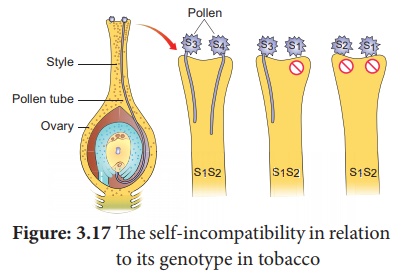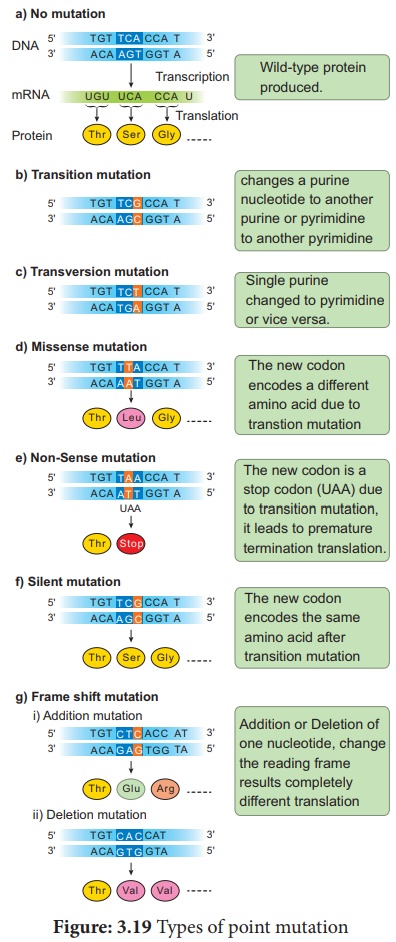Botany : Chromosomal Basis of Inheritance - Types of point mutations | 12th Botany : Chapter 3 : Chromosomal Basis of Inheritance
Chapter: 12th Botany : Chapter 3 : Chromosomal Basis of Inheritance
Types of point mutations
Types of mutation
Let us see the two general classes of gene mutation:
· Mutations affecting single base or base pair of DNA are called point mutation
· Mutations altering the number of copies of a small repeated nucleotide sequence within a gene
Point mutation
It refers to alterations of single base pairs of DNA or of a small number of adjacent base pairs
Types of point mutations
Point mutation in DNA are categorised into two main types. They are base pair substitutions and base pair insertions or deletions. Base substitutions are mutations in which there is a change in the DNA such that one base pair is replaced by another (Figure: 3.17). It can be divided into two subtypes: transitions and transversions. Addition or deletion mutations are actually additions or deletions of nucleotide pairs and also called base pair addition or deletions. Collectively, they are termed indel mutations (for insertion-deletion).

Substitution mutations or indel mutations affect translation. Based on these different types of mutations are given below.

The mutation that changes one codon for an amino acid into another codon for that same amino acid are called Synonymous or silent mutations. The mutation where the codon for one amino acid is changed into a codon for another amino acid is called Missense or non-synonymous mutations. The mutations where codon for one amino acid is changed into a termination or stop codon is called Nonsense mutation. Mutations that result in the addition or deletion of a single base pair of DNA that changes the reading frame for the translation process as a result of which there is complete loss of normal protein structure and function are called Frameshift mutations (Figure: 3.19).
Related Topics